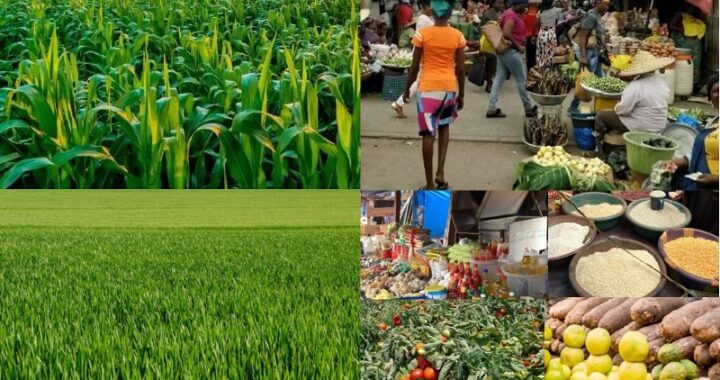On May 26, 2021, a United Nations Food Systems Summit Independent Dialogue was convened by the Measurement, Evaluation, Accountability, and Leadership Support for NCDs Prevention (MEALS4NCDs) Project/African Food Environment Research Network (FERN) in collaboration with some key stakeholders in the African region: African Population and Health Research Center (APHRC), Réseaude Recherchesurles Politiquesetles Systèmes Alimentairesen Afriquedel’Ouest (REPSAO), African Nutrition Society (ANS), Federation of African Nutrition Societies (FANUS), Coalition of Actors for Public Health Advocacy (CAPHA), IFPRI-led CGIAR-Research Program on Agriculture for Nutrition and Health (A4NH), Rockefeller Foundation’s-led Food Systems Transformative Integrated Policy (FS-TIP), Drivers of Food Choice Program (DFC), Agriculture, Nutrition and Health Academy (ANH Academy), Chronic Diseases Initiative for Africa (CDIA), & the African Union Development Agency(AUDA-NEPAD). Dubbed “Re-imagining Africa’s Food Systems Transformation through Data, Advocacy, and Leadership,” the event aimed to examine how “Data, Advocacy, Accountability, Governance, Leadership, and Leadership Support” can be leveraged to help transform Africa’s food systems by 2030. The dialogue was in contribution to the upcoming September 2021 UN Food Systems Summit.
The dialogue was host to more than 80 participants/stakeholders from a variety of food systems disciplines, including agriculture, environment and ecology, trade and commerce, education, media & communication, food processing, food retail, healthcare, nutrition, and national and local government. Additionally, the dialogue sought to engage those from public, non-profit, and private sectors such as consumer groups, small to large–scale farmers, national and multi-national businesses, local and international non-governmental organizations, workers and trade union, Government institutions, regional economic communities, United Nations, and academia to exchange ideas and reflect on the challenges and opportunities for transforming the current African food systems. Stakeholders were encouraged to deliberate on the role of data, advocacy, accountability, governance, and leadership in transforming the African food systems.
Professor Amos Laar of the University of Ghana School of Public Health, Principal Investigator/Project Lead of MEALS4NCDs and convener of the dialogue, noted in his welcome message that Africa is facing unprecedented challenges of four intersecting pandemics – climate change, undernutrition, obesity/diet-related NCDs, and now, COVID-19. He explained that the collective impact of these pandemics on our food systems warrants urgent and decisive actions to be taken by governments with data-driven inputs and nudging, with support from all relevant stakeholders. He asked stakeholders to consider their participation in the dialogue as their ongoing contribution to reimagining Africa’s food future, and ultimately, Africa’s future.
Adhering to recommendations from the UN regarding organization of the Food Systems Summit Dialogues, the conversation was held as focus groups such that all participants had purposeful and respectful exchanges with diverse food systems stakeholders and contributed to the discussion topics. Prior to starting the small group discussions, participants were apprised with the context in which the dialogue was expected to take place. Ms. Bibi Giyose (Senior nutrition and food systems officer, and special advisor to the NEPAD CEO) provided a perspective on how Africa is positioning itself for the upcoming UN Food Systems Summit and general food systems transformation. Prof. Anna Lartey (Professor of Nutrition at the University of Ghana and Immediate past Director of Nutrition, FAO, Rome) presented the African context and introduced the idea of food systems in context with key concepts and ideas. Dr. Samuel Oti (Senior Program Specialist at Canada’s International Development Research Centre (IDRC) and Host of MedTek Africa podcast) highlighted the crucial role that measurement, evaluation, accountability, and leadership support (“MEALS”) plays in food systems transformation. Once the context of the conversation was successfully framed, participants were ushered into their respective groups in accordance with the three core topic areas of: (1) Role of Data (measurements and evaluations) in food system transformation; (2) Role of Advocacy, Governance and Accountability Science in food system transformation; and (3) Role of Leadership in food system transformation.
During the discussions, participants highlighted the need to establish a clear strategic plan and institutionalization of food systems data. The absence of such was noted to contribute to the current ad hoc approach to food system data collection and data usage across the continent. Recommendation to employ the use of technology (e.g. artificial intelligence) during data gathering as well as ensuring transparency and accountability in data sharing were made.
Also, food systems actors’ participation in advocacy and accountability have been alluded to as key in transforming Africa food systems. Participants believe that food systems actors’ involvement in awareness creation and sensitization on the current food system, advocacy actions for strong policies and legislation, and harmonization of standards that are transparent and accountable to promoting health food environment and lifestyle changes related to food consumption patterns are needed. There was a call for African countries to also link trade policies and food and nutrition security policies to the nutritional needs of the population.
Apart from the traditionally known players in the food systems, the suggestion to involve other key actors like celebrities in building demands for sustainable, healthy and safe diets was mentioned. The need for inclusive leadership from government leaders, community actors, nutrition champions, policy entrepreneurs, academics and other relevant stakeholders to contribute to a holistic food system was also emphasized.
To round off the meeting, Professor Amos Laar delivered the event’s closing remarks, expressing his appreciation to all those who contributed to the dialogue, including the MEALS4NCDs core team, local organizing committee, and facilitators. He also thanked the dialogue curators, Dr. Namukolo Covic (President of the African Nutrition Society, International Food Policy Research Institute (IFPRI) Ethiopia) and Prof. Anna Lartey as well as all the participants of the dialogue. He noted that the closing of this meeting is not the end, but rather the beginning of a fruitful, impactful, and sustainable collaboration among stakeholders to successfully transform Africa’s food systems.
Acknowledgment of the Funder
The MEALS4NCDs Project (Convener of this Independent Food Systems Dialogue) is funded by The International Development Research Centre (IDRC) Food, Environment, and Health Program—IDRC, Canada.

